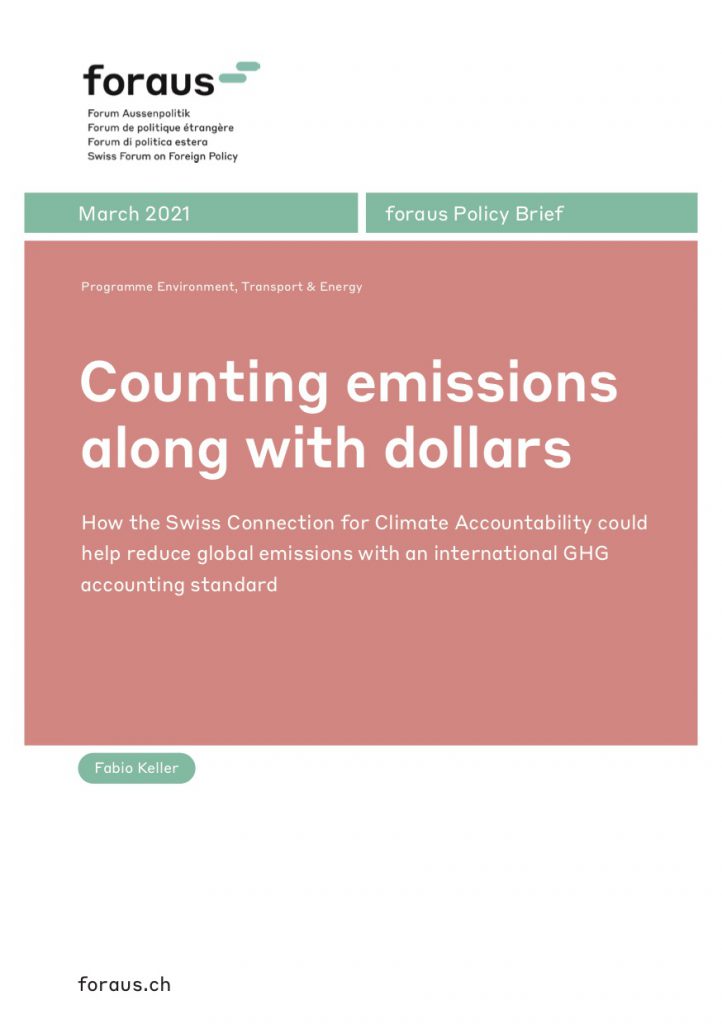Fabio is a Master’s student of Computational Social Sciences at the University of Lucerne. The degree combines data science and programming skills with economics, law and political
science. He is a member of the Swiss Study Foundation, has a background in International Relations (University of Geneva) and works as a freelance journalist for various media outlets. Previously, among other experiences, he worked in strategy and communications at a multinational firm and helped in assisting civil authorities during the pandemic as an Officer of the Swiss Military. He has been counting emissions along with dollars ever since he made his first investment at the age of thirteen.
Publications by Fabio Keller

How environmentally friendly a company is on paper too often depends on its location or on the method used to assess it. Sustainable investing is challenging due to a lack of standardized methods and comparable data. Greenhouse Gas (GHG) accounting – a set of rules to account for a corporation’s GHG emissions – could make sustainable investing more transparent. It enables investors to decide on the basis of a quantitative metric. Current private and national approaches in GHG accounting are only of limited use to investors because these initiatives are in most cases voluntary, limited to a single country, or applicable to specific economic sectors only. This paper proposes that Switzerland should promote transparent, sustainable investing
internationally through a multi-stakeholder coalition called Swiss Connection for Climate Accountability SCCA. The SCCA has two goals: First, for the international community to request a report from the IPCC on the potential for a global GHG accounting standard.
Second, to adapt existing GHG accounting methods for use as top-down standards to provide to the Swiss and European market independent, accessible information on corporate environmental performances. This approach gives the opportunity to require GHG emissions disclosure on the basis of a recognised, uniform standard. It has the potential to bring GHG accounting in line with financial accounting, and it would provide a basis for increased innovation and academic education.





